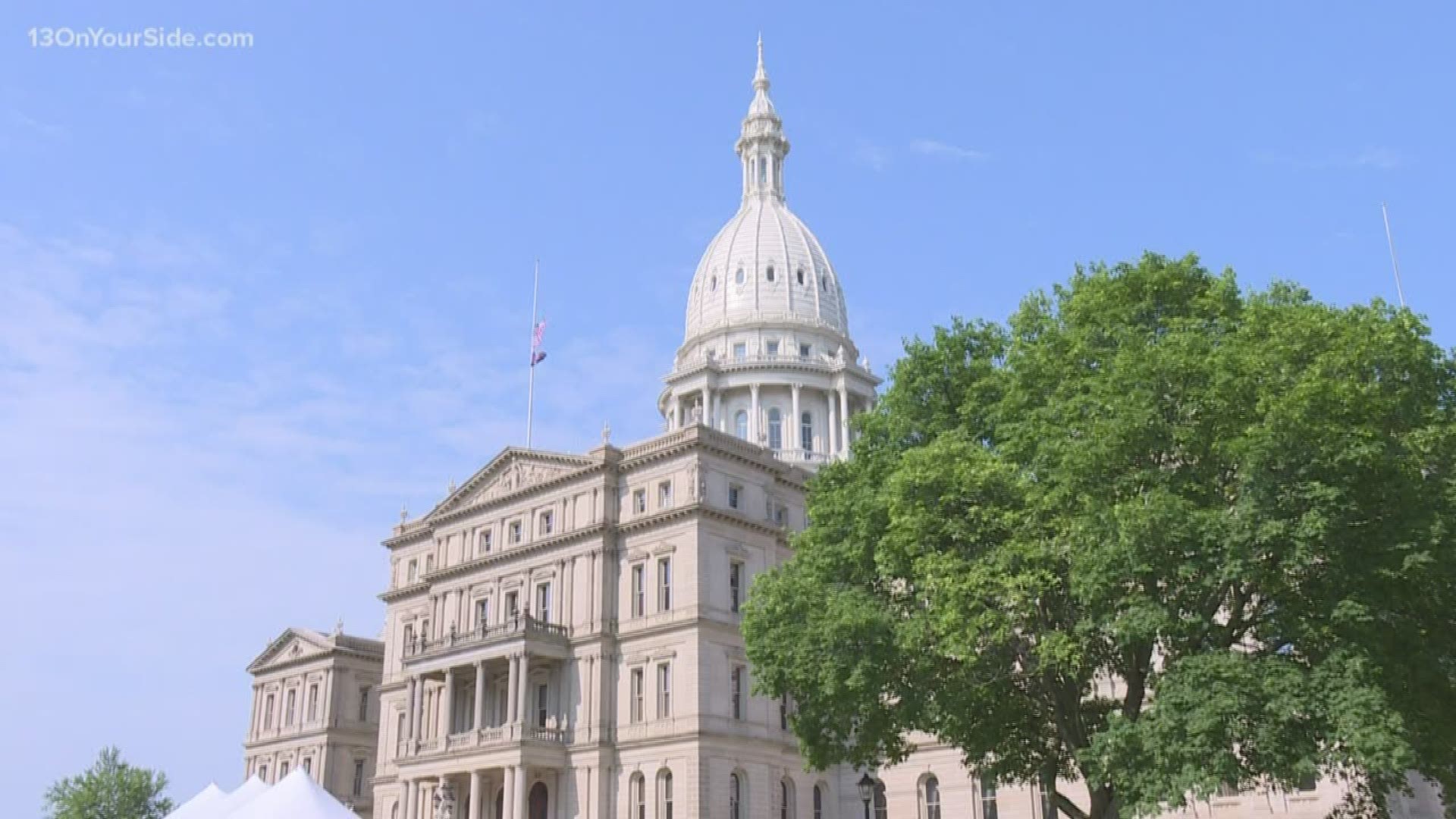LANSING, Mich. — LANSING, Mich. (AP) — The Republican-led Michigan Legislature gave approval Tuesday to $44.7 billion in state spending, setting the stage for a showdown with a Democratic governor who called the final budget bills "a mess" weeks after talks broke down.
The next fiscal year starts in a week. It appears unlikely there will be a partial government shutdown, but Gov. Gretchen Whitmer could partly or fully veto spending measures.
"These budgets are a mess," she said in a written statement that accused Republicans of "playing more shell games with the state budget so they can buy a phony talking point that they're spending 'record money' on roads."
The linchpin of Whitmer's budget proposal was an unpopular 45-cents-a-gallon fuel tax hike, which is dead. She has said it would ultimately have generated $2.1 billion more for roads and bridges by the 2020-21 fiscal year, if lawmakers had also agreed to end the earmarking of income tax revenue to the transportation budget.
Under a budget bill that passed on party lines, Michigan would spend $400 million in general funds to boost deteriorating roads and bridges.
"If signed into law, Michigan would spend more in the coming fiscal year on roads than at any other time in our state's history," said Sen. Wayne Schmidt, a Traverse City Republican who pointed to a net $373 million, or 7.4%, boost. "And we'd be doing it without a 45-cent gas tax increase."
The transportation budget and 14 other spending bills, totaling $44.7 billion in proposed funding, cleared both the House and Senate — some unanimously and others along party lines. Legislators passed a $15.2 billion K-12 budget last week.
The moves came after Whitmer and legislators tabled long-term road-funding talks this month to focus on the budget, then also hit an impasse on short-term road spending during budget negotiations.
"There's very little interest in shutting down the state," said Sen. Curtis Hertel Jr., an East Lansing Democrat. "But at the same time, she's got to show a strong response. ... There's obviously the line-item veto pen, and I think she'll be able to use that significantly. I think there's some other tactics that she could use as well."
Democrats oppose using the $400 million in general funds for roads — a routine practice in recent years, but one they said is a Band-Aid approach that effectively hurts general spending, including on higher education and prisons.
Michigan ranks second to last nationally in per-capita road spending. Whitmer has warned that without a major investment, the number of roads in poor condition will double, from 22% to 44%, in the next five years.
Senate Majority Leader Mike Shirkey, a Clarklake Republican, said he "can't wait" to resume long-term road-funding talks once he hears from the governor.
"I think these are very good budgets," he said. "I don't know what to expect because we haven't been talking for a few days."
There was some bipartisanship Tuesday.
The Legislature voted unanimously for a budget bill that includes a $120 million boost to protect drinking water. The money would be used to help implement tougher lead-in-water rules, to address contamination from chemicals known collectively as PFAS, and to issue grants to water suppliers seeking low-interest loans for infrastructure projects.
But Democrats and Republicans were at odds over a 0.9% funding increase for higher education — less than an inflationary bump — and administrative spending cuts in a portion of the Corrections Department budget. Critics also took issue with a maneuver by which GOP lawmakers allocated $3.2 million for a new redistricting commission that was approved by voters in 2018, less than the $4.6 million proposed by Whitmer.
The constitutional amendment requires legislators to fund the panel with an amount equal to at least 25% of the secretary of state's general fund budget. One bill would cut the general fund budget by $5.4 million but offset it with a corresponding increase in restricted funds.
"We demand that our elected officials stop working to sabotage the Commission and instead start supporting the fair, impartial, and transparent redistricting process voters put in place," said Nancy Wang, executive director of Voters Not Politicians, the committee that spearheaded the ballot proposal.
►Make it easy to keep up to date with more stories like this. Download the 13 ON YOUR SIDE app now.
Have a news tip? Email news@13onyourside.com, visit our Facebook page or Twitter. Subscribe to our YouTube channel.

